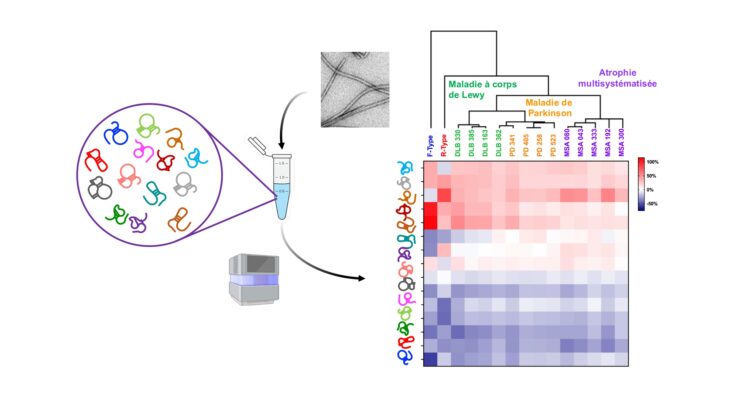Project leader: Frédéric DUCONGÉ
For diagnosis and therapy - (13/02/2025)

Alpha-synuclein is a protein that occurs naturally in the brain. However, when this protein accumulates abnormally, forming fibres, it can cause a number of neurodegenerative diseases known as synucleinopathies, including Parkinson’s disease (PD), Lewy body disease (LBD) and multisystem atrophy (MSA). These diseases affect millions of people around the world and are difficult to diagnose because they manifest themselves through similar symptoms such as motor disorders, memory loss and behavioural changes. What’s more, these symptoms are not specific to these diseases, which can also be confused with other pathologies. On average, it takes several years to diagnose them correctly, and the error rate can be as high as 30%. This difficulty is due to the lack of specific, reliable tests for diagnosing synucleinopathies, especially at an early stage.
Recent results suggest that the heterogeneity of synucleinopathies may be partly explained by the presence of different α-syn fibre conformations (or fibrillar polymorphs) in patients. The lead laboratory has selected nuclease-resistant RNA aptamers that can bind differentially to these polymorphs. These aptamers were used to develop a method (AptaFOOT-Seq) that uses high-throughput sequencing to obtain a different “molecular fingerprint” for each polymorph. These fingerprints made it possible to distinguish polymorphs obtained from patients with PD, MCI or MSA. This result suggests that this method could be used to improve the diagnosis of synucleinopathies.
Contact : Frédéric DUCONGÉ (CEA MIRCEN, équipe Thérapeutiques innovantes et translationnelles)